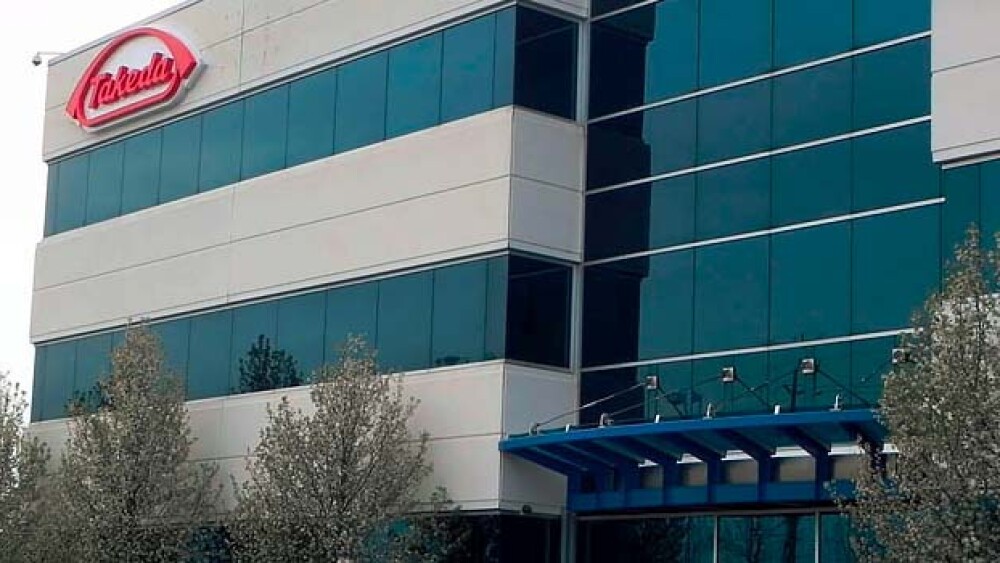Although it was probably not in serious peril, shareholders of Japan’s Takeda Pharmaceutical voted to approve the acquisition of Dublin’s Shire. The deal is currently valued at $58 billion.
Although it was probably not in serious peril, shareholders of Japan’s Takeda Pharmaceutical voted to approve the acquisition of Dublin’s Shire. The deal is currently valued at $58 billion.
The deal came together in May 2018, with Takeda’s final official bid coming in at around $62.2 billion. Takeda made five public bids for the company. The deal came in at about $30.33 per share in cash and 0.839 shares of Takeda stock. Currency fluctuations and Takeda’s share price drop brought the value down to about $58 billion.
Takeda is gaining both Shire’s portfolio, heavy on rare disease drugs, and a stronger U.S. market presence. It’s also picking up a significant amount of debt, which pushes the deal closer to a total of $80 billion. And it is largely this debt that caused some problems leading up to today’s approval. As part of the final deal, Takeda has secured $30.9 billion in bank loans.
A fairly small but vocal opposition group of Takeda shareholders calling itself “Think About Takeda’s Bright Future” or TTBF, made several attempts to scuttle the deal. At the June annual meeting, the group, which at the time had about 130 shareholders in it, expressed their opposition and advanced a proposal that would require advance shareholder approval be required for large acquisitions. The proposal, however, only received about 10 percent of votes in favor, failing to pick up wider opposition support.
And in September, the group gained a high-profile supporter, Kazu Takeda, a member of the Takeda family. He told The Times, “Hasty decisions on big deals should be avoided. It will lead to disaster if there are large-scale mergers and acquisitions without careful consideration.”
He also felt the deal would undermine one of the primary principles of “Takeda-ism,” which is that the company makes money by making people happy. He told The Times, “We understand that scaling up is necessary, but Takeda management has to think about the traditional corporate culture and the health of the company.”
Despite the opposition, almost 90 percent of shareholders voted to approve the deal. Since hints of the deal were first broached in March, Takeda shares have dropped approximately 25 percent. Satoshi Ito, a 75-year-old shareholder, told CNBC, “I want to keep my Takeda shares into the future, but now I am worried about further declines in the share price.” He abstained from voting.
Kazu Takeda, ahead of the vote, said, “We are definitely against this because the financial risks are too great and the expected benefits are quite limited. I think M&A is quite necessary for Takeda’s future but Shire is not the answer,” CNBC reported.
Takeda’s chief executive officer, Christophe Weber, has indicated the deal will be profitable because he plans to cut costs. He projects annual savings of at least $1.4 billion three years after the close of the deal. The company also plans to sell up to $10 billion in non-core assets to help pay off the loans.
Andy Plump, global head of R&D for Takeda, told Reuters, “We have a plan for divestiture that gets us to a place in three to five years that our credit agencies are OK with. Our credit rating is likely to tick down a notch, but still above junk bond status, which is critical for us.”
Kazu Takeda is not the only person who appreciates that Takeda needs M&A in order to stay competitive. The broader issue, aside from the debt, is whether the Shire acquisition was the best way to go. Shire has a strong presence in the hemophilia market, but it facing competition from Roche.
“It’s crucial whether the drugmaker can reinvest profits from the deal into seeds for developing future drugs,” stated Kazuaki Hashiguchi, senior drug analyst at Daiwa Securities. “The benefits of the deal will last for a limited time, as no treatments can avoid patent expiration.”
The challenges for Weber and Takeda will be considerable, particularly if Weber’s cost-cutting plans include cutting Japanese jobs. This could lead to a backlash. And the Wall Street Journal, perhaps with some irony, notes that when Weber took over Takeda in 2014, he told them he asked for advice from Carlos Ghosn, who was chairman of Nissan Motor Co., and like Weber, was French-educated. (Unlike Weber, who was born in France, Ghosn was born in Brazil, but also has French and Lebanese nationality.) Recently, Ghosn was ousted as chairman on suspicion of understating his compensation in financial reports, although he has denied any wrongdoing.





